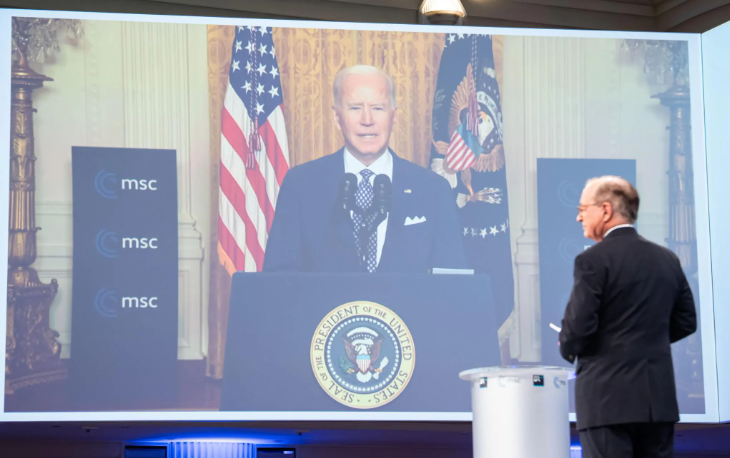Zhao Minghao: Senior Fellow at the Institute of International Studies, Fudan University, Adjunct Fellow of CISS, China Forum Expert
The Munich Security Conference 2022 was held under the shadow of multiple challenges including the Ukraine crisis. The Munich Security Index 2022 shows perceptions of risk that pervade the societies of G7 countries due to the COVID-19 pandemic, geopolitical tensions, domestic political polarization, and rising inequality. As the Munich Security Report 2022 points out, many Western people believe that they are living in a "new era of successive and interconnected disruptions," and there is a growing "collective helplessness."

Such helplessness comes from domestic political dysfunction. Economic inequality, ethnic tensions, and intergenerational conflicts are old problems that become even worse in a polarized political environment. The stagnation of political reforms has largely contributed to "crisis fatigue" within the G7 countries mentioned in the Munich Security Report 2022. People feel less confident in their governments. According to a recent NBC News poll, only 22 percent answered that things are "headed in the right direction."
The trend toward the retreat of democracy continues, warned Wolfgang Ischinger, chairman of the Munich Security Conference. The "illiberal movement" within the West is worsening, and there are challenges like populism and neo-fascism. US leadership in the West has been damaged due to its domestic illiberal movement. During the Biden presidency, the US is more divided under the crisis of democracy.
Helplessness stems from the external challenges Western countries face, which are often self-imposed. NATO enlargement and the EU's expansion eastward are the key factors influencing Russia's strong responses to the Ukraine crisis, according to John Mearsheimer, professor at the University of Chicago. He pointed out that the Ukraine crisis is the West's fault as the West had been moving into Russia's backyard and threatening its core strategic interests.
Indeed, Ukraine has the right to make a choice, but that choice should not expose its neighbor to a major security threat. Given the US and EU interference in Ukraine, it's hard to argue that Kiev's choice is truly "independent." Leaked classified documents show that senior US officials like Victoria Nuland, US' current under secretary of state for political affairs, have been weighing in on the make-up of the Ukrainian government.
For the US, the survival of NATO depends on deliberately created geopolitical tensions. The Obama administration's actions during the Russo-Georgian War and the Biden administration's moves during the recent Ukraine crisis show to the world a rattled US government.
"Helpless" Europe must realize that there is indeed a geopolitical factor. Some European countries, including Germany, seem to be interested in participating in the geopolitical game in the Indo-Pacific region, following Washington to provoke Beijing on the Taiwan question. This will bring them into trouble.
Another contribution to the West's helplessness is the Afghanistan issue. With the hasty withdrawal of the US troops from Afghanistan, the humanitarian crisis in Afghanistan is getting worse because of the de facto US sanctions against the Taliban. The West does have a sense of frustration over Afghanistan, but it cannot be allowed to shrug off its responsibility in an immoral matter.
The West is facing what former European Commission President Jean-Claude Juncker called a "polycrisis." The US is hardly leading the West out of helplessness, and is in fact the cause. As the Munich Security Report 2022 emphasizes, collectively, they have the chance to turn the tide. Individually they risk being swept away. Europe needs to make efforts to this end, especially to persuade Washington not to indulge in confrontations with China and Russia.
(Originally published on Global Times on Mar. 23, 2022)
